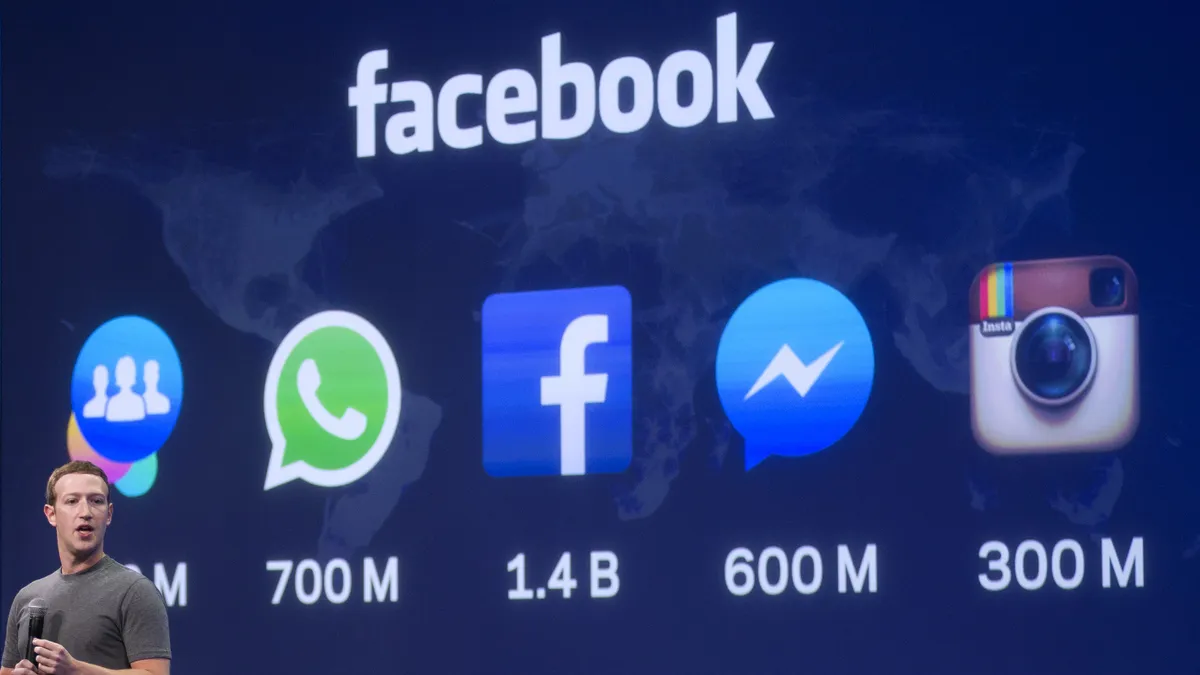Dive Brief:
-
Facebook will discontinue its M personal assistant that was available on Facebook Messenger and combined human assistants and artificial intelligence on Jan. 19, according to VentureBeat.
-
M relied on text-based messages and struggled to complete tasks without the help of humans, which were needed for the majority of requests, the publication said.
-
M launched to a limited group in 2015 and was only ever available to a few thousand people, including some Facebook employees, in a closed beta program. In spring 2017, M entered Messenger through the integration of M Suggestions, which makes recommendations based on text conversations. M will continue to exist to recommend third-party bots.
Dive Insight:
Facebook is struggling to gain a foothold in the increasingly crowded — and important — digital personal assistant space, where products like Amazon Alexa, Google Assistant and Apple's Siri dominate the conversation. The need for human help and reliance on text-based messages made M a complicated and cumbersome solution compared to the competitors, many of which can perform tasks without assistance and solely through voice activation.
Ad spending on voice-powered assistants will reach $19 billion by 2022, according to Juniper Research. With continued adoption of the technology, Facebook is unlikely to be out of the game yet. The company is reportedly working on a standalone smart speaker with a 15-inch touchscreen and a video chat device featuring artificial intelligence. In July, Facebook also acquired the AI startup Ozlo, which could inform its potential new products and better take on the existing voice assistant competition. Powering down M might simply be making way for a more sophisticated solution.
But for now, without an AI-powered device of its own, Facebook could be missing out on what's shaping up to be a fresh source of ad revenue and important channel for connecting directly with consumers in the home. Smart speakers are expected to be installed in 55% of U.S. households by 2022, Juniper Research found. Smartphone users are predicted to use an average of three voice assistant platforms across multiple devices, including connected TVs, wearables and smart cars by that year.














